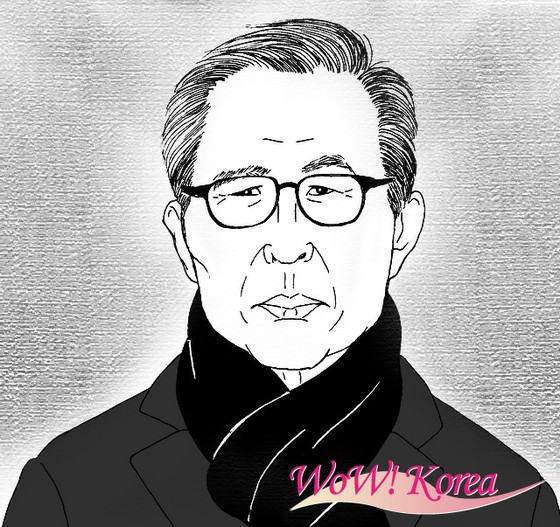 |
South Korea has a "Dokdo Guard" stationed on the island. Until February, members of the "compulsory police" had been assigned. Obligatory police are a type of police, but they are not official police officers. Instead of being drafted as military personnel, South Korean youth are enlisted and are tasked with supporting police operations.
The compulsory police system has been established as an alternative to military service. In South Korea, adult males are currently required to serve for about two years, but they are treated as if they had fulfilled their military service obligations by taking on the duty of mandatory police.
However, due to various side effects, the Korean government launched a "gradual reduction of compulsory police and a plan to increase the number of police personnel" in 2017, and from the following year, the number of compulsory police has been reduced by 20% every year. Therefore, it has been decided that the compulsory police system will be abolished in 2023.
With the abolition of compulsory police, the Dokdo Guard has been assigned general police officers instead of compulsory police since March this year. Currently, all members of the Dokdo Guard are general police officers.
The chief of the National Police Agency is the general manager of Dokdo security. On the 16th, Director Kim visited the island by helicopter and encouraged the members.
The Head of Korean police visited Takeshima/Dokdo for the first time in March 2005 by Director Huh Joon-young, who was equivalent to the Ministry of Foreign Affairs and Trade (currently the Ministry of Foreign Affairs and the Ministry of Foreign Affairs of Japan) at that time and were concerned that "there may be controversy".
Kim explained in an interview with Yonhap News Agency about this visit to the island, "There is no diplomatic meaning, just to encourage the staff working in remote areas" but the Japanese government strongly opposes it. Foreign Minister Yoshimasa Hayashi said, "It is extremely regrettable that it was not accepted at all" and revealed that he had strongly protested against the South Korean government.
On the other hand, in August 2012, then President Lee Myung-bak landed on Takeshima/Dokdo for the first time as president. Japan strongly repelled, and Foreign Minister Koichiro Genba temporarily returned Ambassador to Korea Masatoshi Muto (both at that time). In addition, Japan-South Korea relations deteriorated as President Lee's visit to the island made it difficult to continue discussions between Japan and South Korea over the General Security of Military Information Agreement (GSOMIA) and the Economic Partnership Agreement (EPA).
The background to the former president's landing was the growing distrust of Japan due to historical issues, the decline in his centripetal force as president, and the decline in the approval rating. Lee Myung-bak's memoir, published by President Lee in February 2015, states that he had the intention to land before he took office.
Since then, South Korea has shown a move to further strengthen the effective control of the island, and in May this year, deployed a unit called "Dokdo 119 Rescue and Emergency Services".
In June of this year, military training was held around Takeshima/Dokdo. The training, which is held twice a year, was attended by the Navy, Air Force, and Marine Police. Although ground training was not conducted, it was conducted on the same scale as usual even in the case of COVID-19. Immediately after, the Japanese government protested to the South Korean side through diplomatic channels.
Immediately after President Lee's visit to the island in 2012, the presidential approval rating had skyrocketed. The easy anti-Japanese campaign has achieved its hidden purpose. But where is he now, given the easy approval rating at the expense of Japan-South Korea relations?
Probably because of the anti-Japanese campaign at the end of his term, the same conservative successor, Park Geun-hye, also maintained the anti-Japanese route unlike his father, and the Sewol accident became an incident, under the name of impeachment of national affairs. Not to mention the anti-Japanese campaign of the innovative President Moon Jae-in, who took control of the "candle revolution."
Since South Korea is in effective control of the island, there is no need to make a noise as a territorial issue. The more noise you make, the more likely it is to become a "conflict area" and go to the ICJ (International Court of Justice).
However, even though former President Lee became president with the support of conservatives, he despised the friendship between Japan and South Korea, which is a traditional conservative virtue, and visited the island on August 10th, 2012. Is it an exaggeration to say that this day was the depart point for a cold prison for 17 years?
2021/11/22 21:08 KST


